| Source (Yiddish) | Transliteration (romanized Yiddish) | Translation (English) |
|---|---|---|
אָי חֲנֻכָּה אָי חֲנֻכָּה — אַ יוֹם־טוֹב אַ שעהנער אַ לוּסטיגער אַ פררעליכער — ניטאָ נאָך אַזױנער…. אַלע נאַכט אין דרײדלאך שפיעלען מיר, זודיג־הײסע לאַטקעס עסט אהן א שיער׃ |
Oy Ḥanukkah oy Ḥanukkah a yuntiv a sheyner a lustiker a freylikher nito nokh a zoyner ale nakht in dreydl shpiln mir zudik heyse latkes esn mir |
O’ Ḥanukkah o’ Ḥanukkah a beautiful festive day a rager, a rave; there’s nothing like it. All night we’ll play the dreidl while endlessly eating piping hot latkes. |
געשװינדער, צינדט קינדער די דיניגקע ליכטלעך אָן! זאָגט „עַל־הַנִּיסִּים,“ לויבּט גאָט פאַר די נסים און קומט גיכער טאנצען אין קאָן.… |
Geshvinder, tsind kinder di Ḥanukkah likhtelekh on zogt al hanisim, loybt Gott far di nisim un lomir ale tansten in kon |
Quickly, children kindle the Ḥanukkah lights, Say “Al hanissim,” praise God for the miracles, and let’s all dance around together. |
יְהוּדָה האָט פערטריבען דעם שׂוֹנֵא, דעם רוֹצֵחַ און האָט אין בֵּית־הַמִּקְדָשׁ געזונגען „לַמְנַצֵחַ” די שטאָדט יִרוּשָׁלַיִם האָט װידער אױפגעלעבט, און צו אַ נייעם לעבן האָט יעדערער געשטרעבט…. דעריבער דעם גִיבּוֹר יְהוּדָה־הַמַּכְּבִּי לױבט הױך! זאָל יעדער באַזונדער באַזינגען דעם װוּנדער און ליעבּען דאָס פֿאָלק זאָלט איר אױך. |
Yehudo HaMakkábi hott fartribbn dem sone der roitséiach, un hott in beisamęgdesh gezungen lamnatséiach, di shtót Jerusholáyem hott vidder oufgelébt, un tsu a naiem lébn hott jędderer geshtrebt; Deribber dem gibber Jehudo HaMakkábi loibt hoich, zoll jędderer bazunder bazingen dem vunder, un líb hóbn dós folk zollt ir oich. |
Yehudah drove out the enemy, the murderer; And sang “lamnatse’aḥ” in the Temple! The city of Jerusalem was revived, And for a new life everyone strived. Therefore praise the hero Yehudah the Maccabee! Let every one sing of the miracle, And love the people too! |
“חנוכּה אױ חנוכּה” was written by Mordkhe (Mark) Rivesman (1868–1924), and first published in Susman Kiselgof’s 1912 Lider-Zamlbukh.
Source

“אָי חֲנֻכָּה | Oy Ḥanukkah, a zemer for Ḥanukkah by Mordkhe Rivesman (1912)” is shared through the Open Siddur Project with a Creative Commons Attribution-ShareAlike 4.0 International copyleft license.
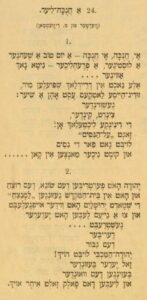
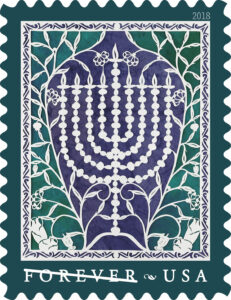
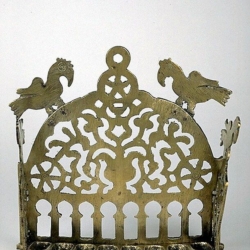
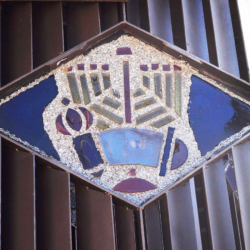


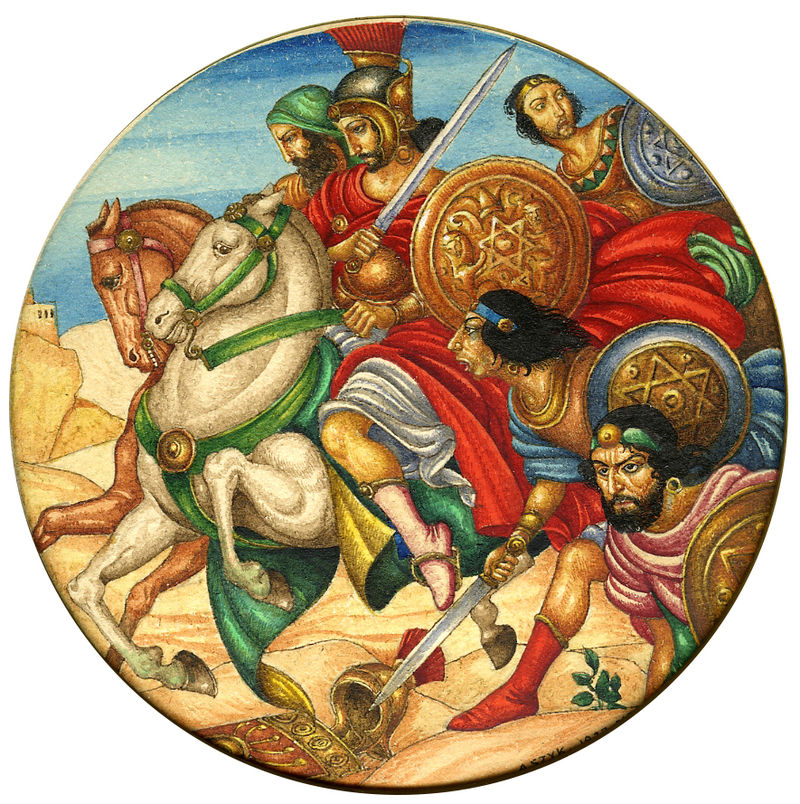




Leave a Reply